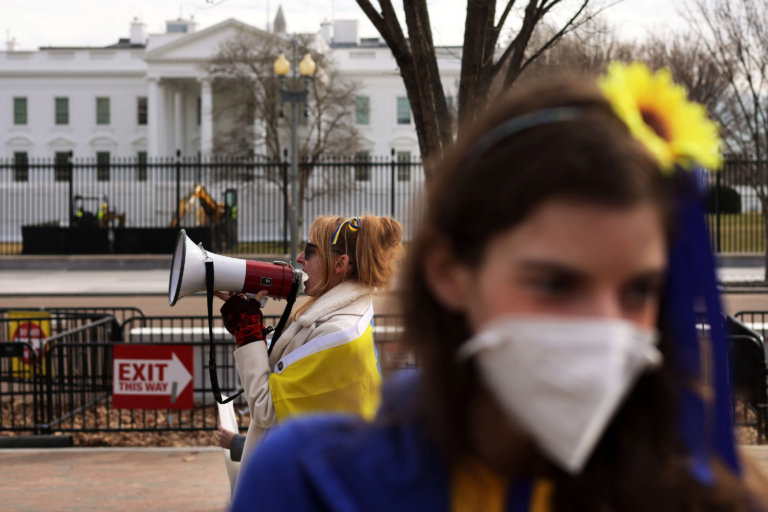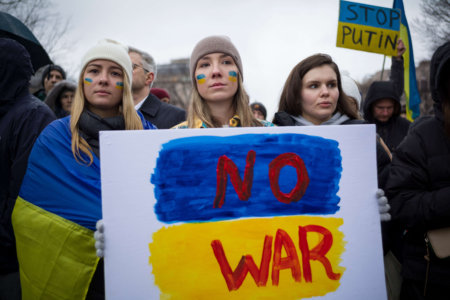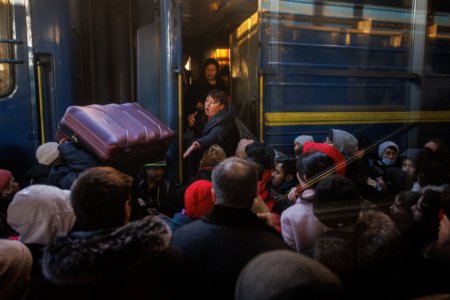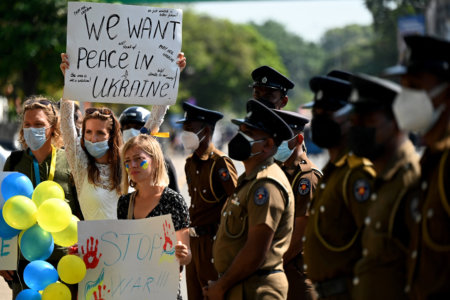
It’s been nearly a week into the Russia-Ukraine war, yet the ripple effects are swift and unforgiving to both nations. The conflict is intimately felt by diaspora communities from both countries, the latest of which involves Russian students in the US.
Responding to the situation in Ukraine, California Representative Eric Swalwell proposed a controversial move as an additional punitive measure against Russia: deporting all Russian students in the US. “Frankly, I think closing their embassy in the US, kicking every Russian student out of the US — those should all be on the table,” Swalwell was quoted saying by reports.
https://twitter.com/RepSwalwell/status/1497728648115195904
The sentiment was backed by Arizona representative Ruben Gallego in a tweet, who iterated that a “strong message” can be delivered “by sending them home”.
We are not living in normal times. These Russian students are the sons and daughters of the richest Russians. A strong message can be sent by sending them home. The world is condemning Russia. https://t.co/Vvz4JC3yYC
— Ruben Gallego (@RubenGallego) February 25, 2022
Gallego’s comment was also aimed at the children of Russian oligarchs tied to the Kremlin, many of whom are currently studying in prestigious institutions in the US.
Many have rebuked Swalwell’s comment, viewing it as an unjust move that would unfairly sentence Russian students for their government’s actions that they have no part in. The number of Russian students in American universities is estimated to be nearly 5,000, and many fear that the expulsion threat would stoke more anti-Russian sentiments.
“This is a misguided proposal that will drive a wedge between the US and people who would be well-served by American values,” writes journalist Fiona Harrigan. “Rather than expelling Russian nationals who are uninvolved in the sins of their government, we should be welcoming them with open arms and encouraging them to engage with our values.”
Russia-Ukraine war: Implications on Russian students abroad
For Russian students overseas, the mere threat of expulsion places them in a vulnerable position to convince others to separate state propaganda from individual choice. “I fled Russia to escape the government and the anxiety that followed me everywhere,” tweeted a Russian student in the UK. “Getting expelled would put a big fat cross on my life and absolutely destroy me as a person.”
Various stakeholders have been airing their views on social media and news outlets, noting that while many Western countries scramble to disassociate from pro-Putin Russian oligarchs and their families, most Russian students in the US aren’t wealthy and are merely there to advance their education.
Some say denying them the chance to continue their studies is not only unwarranted, but it could also perpetuate xenophobia where Russians are perceived as “spies” for their government — an enduring Cold War stereotype that might harm Russian students and academics in the current climate.
Although the former NBC executive deleted this tweet, I do want to share that within US academia there is still this widespread belief that Russian & Chinese students (foreign or not) are “spies,” and “should push come shove, their human rights can easily be discarded in the US.” pic.twitter.com/XqCN4wJeVR
— Tamanisha J John (@TamanishaJohn) February 26, 2022
In Europe, reports of Russian students’ expulsion and deportation threats have emerged on Twitter, although no official confirmation has been made so far. “Today a friend told me that in Prague, several universities have kicked out all Russian students from classes, and they’re not allowed to enter universities,” a TikTok comment read.
https://twitter.com/skykrit/status/1497025346318876675
As tension mounts in the Russia-Ukraine war, retaliatory actions from the US, European Union, UK, and many other nations include economic sanctions, restrictions on the Russian central bank and its access to the SWIFT international payment system. The rouble value is expected to plummet further, inciting panic among citizens who are bracing for economic instability in the coming months. This could potentially harm Russian students abroad, who could face difficulties in financing their education.
On American campuses, anti-war protesters have been active in opposing the Russia-Ukraine war, including Russian students who have no desire to be complicit in their government’s aggression towards its neighbouring country.
“Personally, I just thought, ‘What can I do?'” Russian post-doctoral student Yulia Khalikova was reported saying. “And I was like, ‘Ok, if I were in Russia I would probably go in the street anyway.’ At least to do something and not sit at home.”










